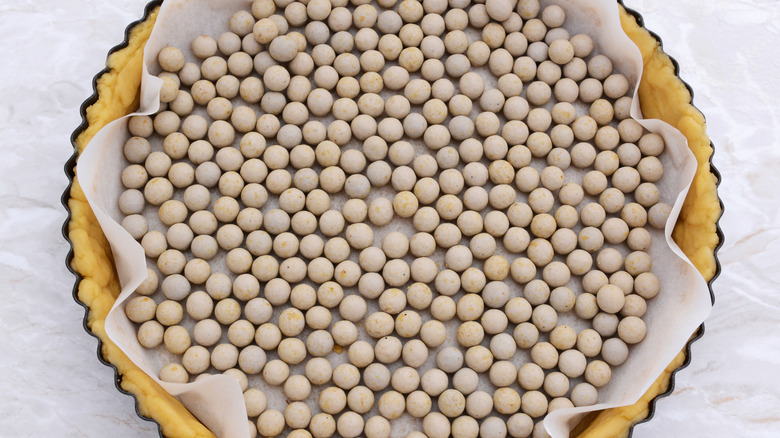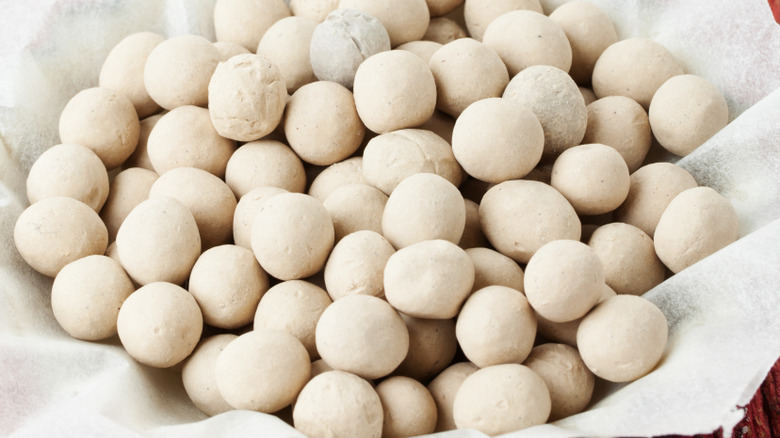Avoid This Common Mistake When Cleaning Pie Weights
We may receive a commission on purchases made from links.
Pie weights are a kitchen staple for any home baker. They're used during blind baking, an important step when making all kinds of pies, in which the crust is either partially or fully cooked before the filling is added to prevent soggines. These handy tools are usually little balls made of ceramic, metal, or glass, but they can also be in the form of a single circular weight. Pie weights help distribute weight across the bottom of the crust to ensure that it doesn't puff up. Not using them is one of the ways you're ruining your pie crust, so we strongly recommend investing in a set if you're hoping for professional-looking results. Standard ceramic balls like these Mrs. Anderson's pie weights will do the job well. However, pie weights do come with some precautions: For example, avoid the common mistake of washing your pie weights while they're still hot, or else they might experience thermal shock.
If you've ever been told not to put hot glass or a heated Dutch oven in cold water, you're probably familiar with what thermal shock is. It occurs when an object — usually ceramic or glass — undergoes an abrupt temperature change. When this happens, it can result in it cracking due to the stress it undergoes. Because pie weights are often made with ceramic or glass and they enter high temperatures in the oven, they are very susceptible to thermal shock if you plunge them into cold water while they're still hot.
Do you even need to clean your pie weights?
Luckily, thermal shock is only a major risk to those who clean their pie weights — and in most cases, you don't need to clean them after every use. If you're using a single circular weight, you definitely should wash it, since you don't need to line it with parchment paper, meaning it will inevitably accumulate some of the crust's grease. However, many circular weights are metallic and dishwasher-safe, meaning you don't really need to worry about thermal shock.
When using small spherical ceramic or glass pie weights, on the other hand, you'll use a sheet of parchment paper in between the pie weights and the dough to keep it intact and to prevent any of the grease from the dough from getting into the weights. Because of the parchment paper barrier, it's not always necessary to wash your pie weights, but it's still good to do once in a while to prevent discoloring or any unwanted odors.
It's good practice to at least wipe them with a dry cloth after each use, but if you're noticing wear and tear, always place them in a heat-proof bowl before washing so that they have time to cool off. Then, simply wash them in warm water and let them air dry before placing them back into their container. Following this simple tip will help you avoid thermal shock and keep your pie weights — and your pie itself — all neat and pretty.

